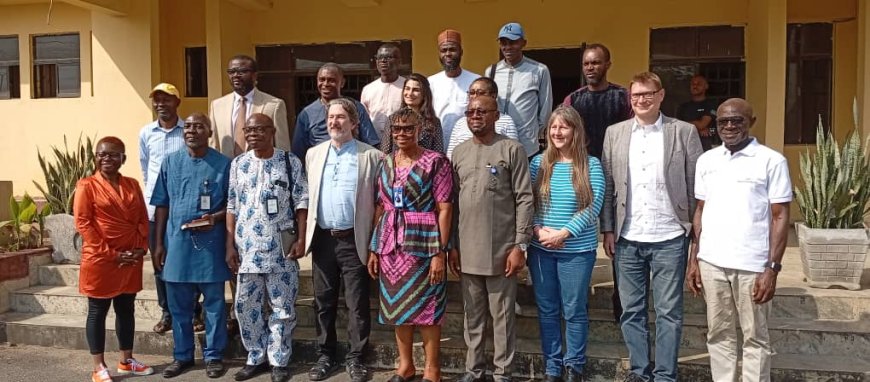British University, Plymouth, Partner UNICAL on Water, Land Management

Judex OKORO
The University of Plymouth and University of Calabar (UNICAL) have established collaboration on water and land management as part of effort to mitigate climate change.
THE BEAGLE NEWS reports that the visit by British University team to UNICAL on Wednesday is a culmination of agreement reached at between the universities on how to tackle climate change.
Speaking, the British institution’s team lead, Prof. William Blake, who is the Director of the Sustainable Earth Institute, University of Plymouth, noted that research and manpower development to be the area of mutual collaboration between the two universities.
He said that the collaboration which also extend to Ghana, Nigeria West Africa counterpart, is under the sponsorship of the British University and meant to further cement the relationships among the countries.
"We have been given a small sponsorship by the British government to build relationships with Nigeria and Ghana about climate smart agriculture with particular interested in land and water dimensions.
"Particularly, this is centered on soil health and how soil health health in its holistic sense can help solve many problems in relation to climate change adaptation, food security and climate change mitigation.
"So we are really interested in understanding the different skills set within the country, and the different research questions so that we can formulate research plans together, co-design research strategies and solutions that can help.
"We are keen to discuss with each other on the way we do things on our side and also the ideas that they have and look for synergies were between our two institutes and try to support each other for sustainable environmental management.
"And of course, the carbon emissions centre in the University of Calabar really reflects on that and it's a key ingredient of the land in terms of soil organic matter.
"Soil health rests on soil organic matter within the landscapes. So the more we can do work particularly in the soil organic matter and know the amount of carbon stored in the soil we know the key benefits that come with it.
"Change in the soil structure reduces flooding, improves productivity and all the problems associated with it, a healthy soil will help prevent this.
"It's a really fundamental thing and so for us it's that meeting point between sustainable earth and carbon emissions is something we really need to pay attention to and we will work closely with our colleagues in the University of Calabar," Blake explained .
Welcoming the collaboration, Prof. Ralph Offiong Director, University of Calabar Carbon Emissions Centre, said climate change have become a threat to mankind, explaining that the collaboration border on the blue and green economy; climate change and local community’s livelihood sustainability enhancement.
According to him, "we are trying to see how we can have support from external universities to bring their ideas and funds while we also bringing our ideas together to see how we can manage climate change issues.
"Climate change is a very serious threat to mankind because it is affecting ecosystems, affecting humanity, businesses affecting everything from the clothes we wear, , the food we eat and every other thing we do, so that is why we are going into this collaboration."
The University of Calabar promised total support for the collaboration, especially against the backdrop that the city of Calabar is surrounded by water.
The University's Vice Chancellor, Prof Florence Obi, represented by the Deputy Vice Chancellor administration, Prof. Eno Nta, made the promise in her remark during the visit.
"We belong to the riverine part of the country, our people live on water, our livelihood is in water. It is good to understand the waters better and how we are encroaching or how the water is encroaching too," she stated.













































